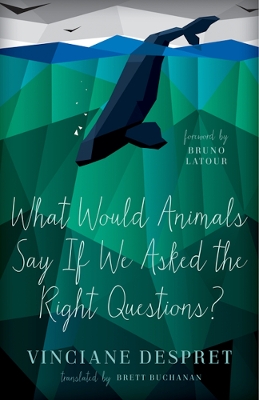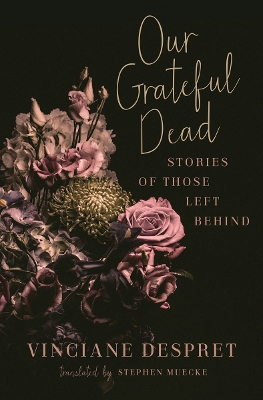Posthumanities
2 total works
“You are about to enter a new genre, that of scientific fables, by which I don’t mean science fiction, or false stories about science, but, on the contrary, true ways of understanding how difficult it is to figure out what animals are up to.” —Bruno Latour, form the Foreword
Is it all right to urinate in front of animals? What does it mean when a monkey throws its feces at you? Do apes really know how to ape? Do animals form same-sex relations? Are they the new celebrities of the twenty-first century? This book poses twenty-six such questions that stretch our preconceived ideas about what animals do, what they think about, and what they want.
In a delightful abecedarium of twenty-six chapters, Vinciane Despret argues that behaviors we identify as separating humans from animals do not actually properly belong to humans. She does so by exploring incredible and often funny adventures about animals and their involvements with researchers, farmers, zookeepers, handlers, and other human beings. Do animals have a sense of humor? In reading these stories it is evident that they do seem to take perverse pleasure in creating scenarios that unsettle even the greatest of experts, who in turn devise newer and riskier hypotheses that invariably lead them to conclude that animals are not nearly as dumb as previously thought.
These deftly translated accounts oblige us, along the way, to engage in both ethology and philosophy. Combining serious scholarship with humor that will resonate with anyone, this book—with a foreword by noted French philosopher, anthropologist, and sociologist of science Bruno Latour—is a must not only for specialists but also for general readers, including dog owners, who will never look at their canine companions the same way again.
An award-winning exploration of the presence of the dead in the lives of the living
A common remedy after suffering the loss of a loved one is to progress through the “stages of grief,” with “acceptance” as the final stage in the process. But is it necessary to leave death behind, to stop dwelling on the dead, to get over the pain? Vinciane Despret thinks not. In her fascinating, elegantly translated book, this influential thinker argues that, in practice, people in all cultures continue to enjoy a lively, inventive, positive relationship with their dead.
Through her unique storytelling woven from ethnographic sources and her own family history, Despret assembles accounts of those who have found ways to live their daily lives with their dead. She rejects the idea that one must either subscribe to “complete mourning” (in a sense, to get rid of the dead) or else fall into fantasy and superstition. She explores instead how the dead still play an active, tangible role through those who are living, who might assume their place in a family or in society; continue their labor or art; or thrive from a shared inheritance or an organ donation. This is supported by dreams and voices, novels, television and popular culture, the work of clairvoyants, and the everyday stories and activities of the living. For decades now, in the West, the dead have been discreet and invisible. Today, especially as a result of the Covid-19 pandemic, Despret suggests that perhaps we will be willing to engage with the dead in ways that bring us happiness despite our loss.
Despret’s unique method of inquiry makes her book both entertaining and instructive. Our Grateful Dead offers a new, pragmatic approach to social and cultural research and may indeed provide compassionate therapy for those of us coping with death.

